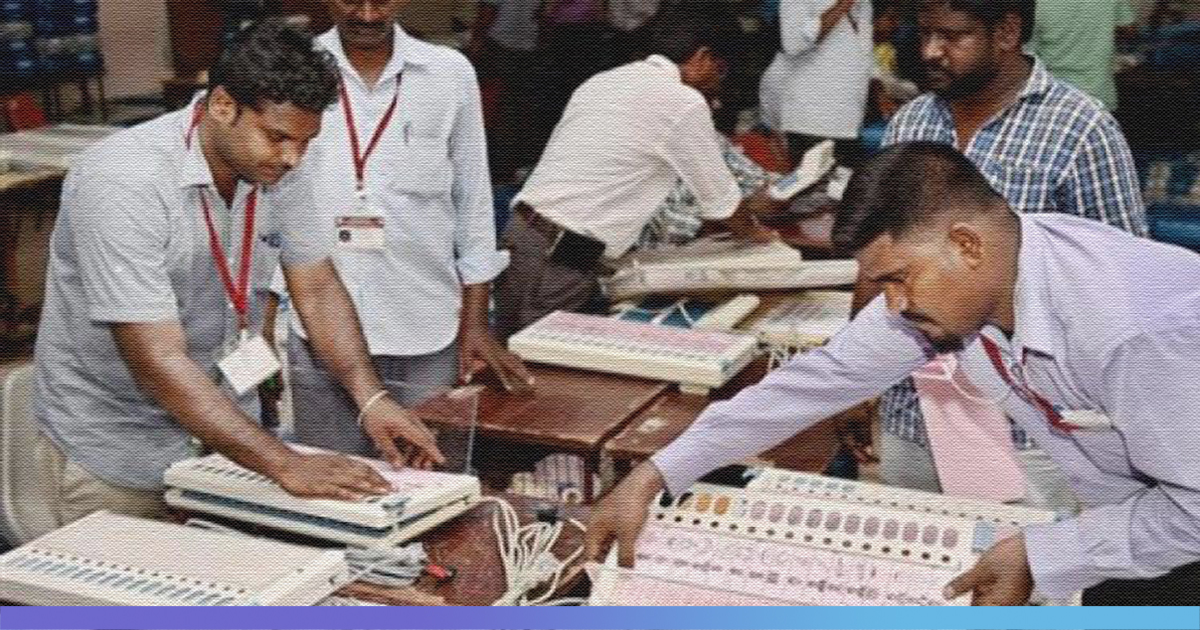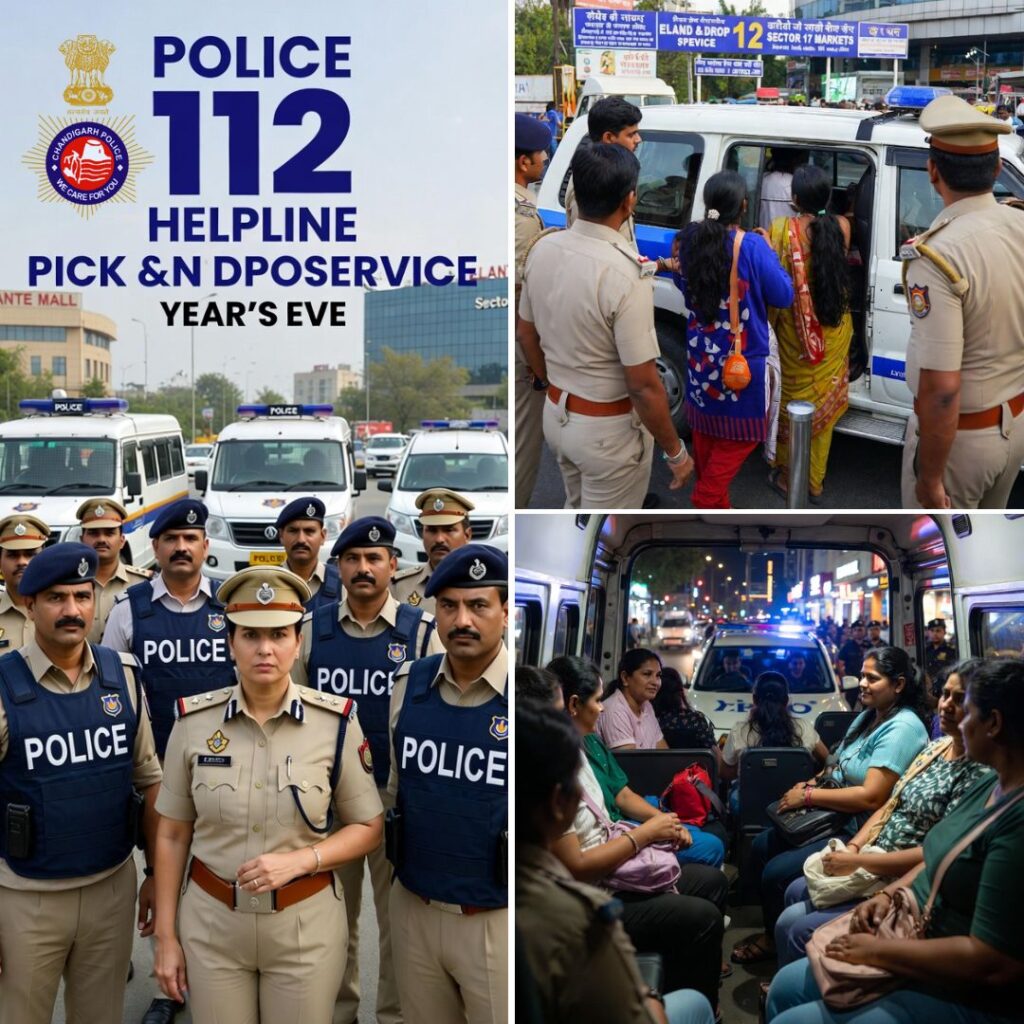The Electronic Voting Machine has been shrouded in controversy, throughout this election. Several videos emerged on social media throughout, showing ‘suspicious and illegal’ movement of EVMs, booth capturing and unguarded movement from/to the strongrooms just ahead of counting in the Lok Sabha 2019 elections. However, the Election Commission had come on record and denied almost all allegations.
The election season saw widespread allegations of misconduct. The ‘impartial’ Election Commission has gone on from being one of the most respectable constitutional body, to one that is constantly marred with controversy almost every other day.
The Curious Case of EVMs
In the last 48 hours, several videos showing the movement of EVMs have been floating online. This has raised suspicion among people that these voting machines are being tampered with. Different political parties from Ghazipur, Chandauli, Domariaganj and Jhansi in Uttar Pradesh staged protests. They alleged that EVMs have been changed in the strongrooms, in favour of the BJP.
Without any comment, an EVM video from Chandauli, UP.
pic.twitter.com/Gmwj638mdo— Ravi Nair (@t_d_h_nair) May 20, 2019
Bahujan Samaj Party (BSP) candidate Afzal Ansari protested outside the strongroom at Ghazipur. He alleged that there had been an attempt of transporting a truck full of EVMs. Ansari and his supports even had a heated argument with a police officer.
WOAH!
WATCH MGB candidate from Gazipur confronting POLICE on EVM safety.
He alleges that a truck full of EVMs was spotted. He is now sitting on dharna outside the counting centre. His demand is that instead of CISF, BSF must protect EVMs.
Watch this space for more. pic.twitter.com/kpYLbyPc73
— SaahilMurli Menghani (@saahilmenghani) May 20, 2019
Additionally, former Chief Election Commissioner Dr S.Y. Quraishi tweeted asking the EC to clarify the facts, “Speed is extremely important,” he said. In an interview with India Today’s Rajdeep Sardesai, he said that in the age of internet and social media, it was extremely important for EC “to give a detailed explanation for each incident”.
Why is EC not clarifying what the facts are? Speed is extremely important. https://t.co/XaHSnpE497
— Dr. S.Y. Quraishi (@DrSYQuraishi) May 21, 2019
The EC, in its defence, released a statement saying that the EVMs were “absolutely safe in the Strongrooms”. The EC in the press release further clarified, “Each strongroom is guarded with round-the-clock security of Central Armed Police Forces (CAPF). Further, the candidates or their designated agents remain present at the strongroom for a 24X7 vigil at all times.” Further, the press release said that the videos being circulated of EVMs being transported pertained to unused EVMs.

It may be noted that even the transport of unused EVMs has to follow a particular protocol, as pointed by Quraishi. However, no clarification on that front has yet been issued by the election watchdog.
EC guidelines on return of EVMs – both polled and unused reserved. pic.twitter.com/PrXCLi3bML
— Dr. S.Y. Quraishi (@DrSYQuraishi) May 21, 2019
Eroding Trust on VVPAT
Recently, the EC turned down the opposition’s demand for tallying of VVPAT at five randomly identified polling booths, and 100% counting of slips if any discrepancies found. The body said that it would stick to the methodology, that is tallying the slips from 5 booths per assembly constituency after the vote counting is completed.
CPM leader Sitaram Yechury called EC’s decision as “going against the spirit of the SC order delivered on VVPAT before polling began”.
Integrity of EVMs by matching with sample VVPATs has to be done at the start of the counting. Doing so after the trends are declared makes it infructuous and is likely to lead to protests and a possible law and order situation from the affected candidates. https://t.co/Aj3zN2wFUT
— Sitaram Yechury (@SitaramYechury) May 22, 2019
Notably, an SC bench led by CJI Rajan Gogoi on April 8 had asked the EC to increase physical counting of VVPAT slips from just one EVM in Assemble segment to five. The court had said that this would ensure a ‘fool-proof’ Lok Sabha 2019 elections.
In January, too, the Opposition had approached the EC, requesting them to either increase VVPAT slips counting to 100% or revert to the old paper ballot system.
There have been demands from activists to recognise VVPAT slip as ballot paper, “it would eliminate the doubts that are raised about manipulation, and malfunction of the machines, as well as delink the debate about audit methodologies from the ballot,” said a statement released by civil society members on May 12. However, the EC has failed to take any decision in this direction, restricting itself to the old methodologies.
Multiple MCC Violations
The faith in the EC has also dwindled owing to various other reasons. Among other serious allegations against the EC, it is said to be biased towards the ruling party.
On multiple occasions, in seemingly obvious cases of Model Code Conduct (MCC) violations, the election watchdog gave a clean chit to leaders like PM Narendra Modi and BJP president Amit Shah, while levying charges against others for similar offences.
Despite EC’s guidelines prohibiting the use of Armed Forces in campaigning, PM Modi continued defying it. From asking first-time voters to dedicate their votes to the forces, to saying that India’s nuclear weapons were not kept for Diwali, all of this went unnoticed by the EC.
Additionally, Amit Shah’s speech where he referred to Indian Air Force as Modi’s Air Force.
In a harsh critique of EC, the Supreme Court in April asked if the body was ‘toothless’ in acting against politicians who were violating the MCC, through communal statements during their campaign.
Another controversy played out in public when Election Commissioner Ashok Lavasa excused himself from meetings pertaining to MCC violations. After the apex court order asking EC to take action against leaders for allegedly provocative speeches during their campaigns, Lavasa had moved a note on streamlining procedures of dealing with MCC complaints.
However, he said that there was no action taken on his suggestions and his ‘minority decisions’ went unrecorded in the final orders. On May 21 again, the EC, in a 2:1 majority decided that all minority or dissenting views shall not be made part of final orders issued in cases of MCC violations.
This is the same body which, under TN Seshan achieved heights of popularity in poll transparency and reinforced rules of MCC in the 1990s. The body, for long, has been regarded in high esteem. However, with the ongoing controversies, this reputation is greatly at stake.
Also Read: Extra Votes Credited To Congress, Not BJP During Mock Poll: Goa CEO











